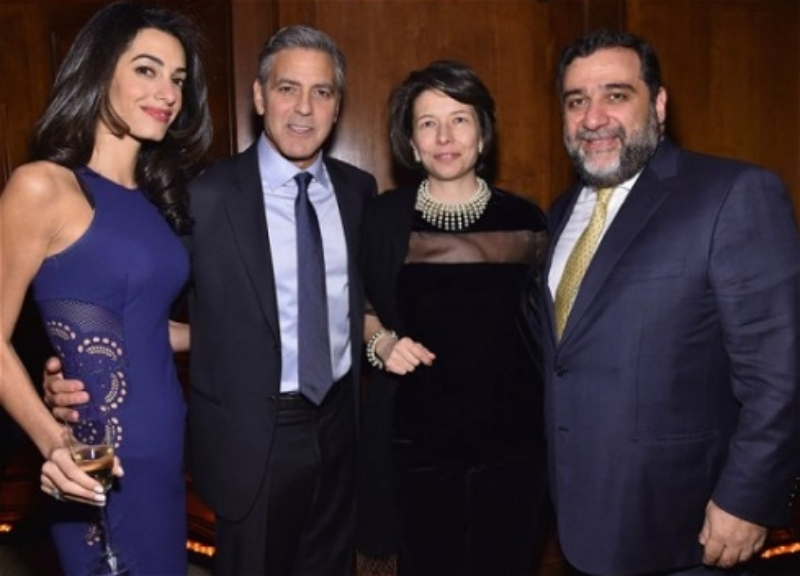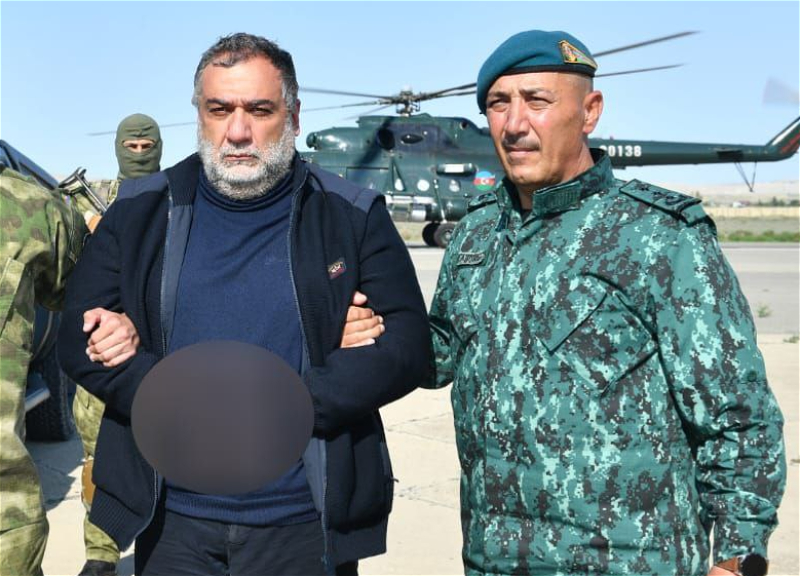Azerbaijan Sees Great Opportunities for Peace with Armenia

A senior representative of the Presidential Administration of Azerbaijan visited Vienna last week to brief high-ranking Austrian colleagues on the Armenia–Azerbaijan peace process.
Speaking to APA (Austria Press Agency) on Friday, Elchin Amirbayov, special envoy of President Ilham Aliyev, explained his country’s position on various issues and at the same time emphasized Baku’s interest in establishing closer relations with Vienna.
He stated that his trip was part of Azerbaijan’s ongoing dialogue with Austria across all fields, noting that 2025 had already been a very intensive year in this regard. Amirbayov recalled the political consultations held between the Foreign Ministries of the two countries, as well as the June meeting in Vienna between the Ministers of Economy Mikayil Jabbarov and Wolfgang Hattmannsdorfer (ÖVP), and the session of the intergovernmental bilateral commission.
Speaking at the Azerbaijani Embassy — located in the former villa of actor Hans Moser — he also mentioned his meetings with Peter Launsky, Special Envoy of the Austrian Federal Chancellor for Global Issues; Nikolaus Marschik, Secretary-General of the Austrian Foreign Ministry; and Walter Rosenkranz (FPÖ), Speaker of the Austrian Parliament.
“After the peace treaty between Azerbaijan and Armenia was initialed in Washington last month, we are entering a new historical era in the region (South Caucasus). In this context, we considered it appropriate to inform our Austrian colleagues and friends about the situation,” diplomat Amirbayov explained the purpose of his visit to Austria. However, he noted that before the final peace agreement is signed, the legal frameworks of both countries must be aligned with the spirit and essence of the treaty.
He specifically pointed out the problem stemming from the current Armenian Constitution. The preamble of the Constitution contains territorial claims regarding Nagorno-Karabakh — a region that, under international law, has always been recognized as part of Azerbaijan since the collapse of the Soviet Union but fell under Armenian control after the 1994 war, when local Azerbaijanis were expelled from these lands. Azerbaijan regained these territories in two stages, in 2020 and 2023, which led to the mass exodus of the local Armenian population.
“Great opportunities for lasting peace”
The peace treaty to be signed entails renouncing mutual territorial claims, Aliyev’s envoy explained. “We have very great opportunities for long-term peace and stability in the region,” he said in an optimistic tone. He stressed that since Armenia and Azerbaijan inherited this conflict from the Soviet Union and have never lived in peace with one another since 1991, there is still virtually no mutual trust between the two countries — something that must be built.
Amirbayov highlighted as an important step in this direction the construction of a 43-kilometer road and rail line through Armenia, which will connect western Azerbaijan with Nakhchivan. “This is not just about linking two parts of Azerbaijan, but also about connecting Armenia and Azerbaijan, as well as Asia and Europe,” he said, describing the project traditionally known as the “Zangezur Corridor,” but referred to in Washington as the “Trump Route for International Peace and Prosperity.” “This is a peace project from which everyone in the region can benefit, provided there is political will,” he added in response to criticism from Iran. The route, to be managed by the United States and located along the Iran–Armenia border, has recently drawn objections from Tehran, as it would also affect one of Iran’s key export routes through Armenia.
Caution amid tensions with Russia
The diplomat emphasized that Azerbaijan continues its “multi-vector” foreign policy launched after regaining independence in 1991. “It is in our interest to maintain positive and stable relations not only with neighboring countries but also with major international partners,” he explained. Azerbaijan has participated in NATO’s “Partnership for Peace” program since 1994, but has never sought NATO membership. He also spoke cautiously about current tensions between Baku and Moscow, which have led to reciprocal arrests of citizens in both countries. He declined to comment on recent threats aired by Russian propagandists on state television about possible military action against Azerbaijan, stressing that for his country, only the positions of the Russian president and government matter.
As for the ongoing debate in Austria about the future of its “permanent neutrality,” Amirbayov said Azerbaijan views itself only as an external observer. “Austria is a friendly country for us, and we wish it success in every field,” he said. But he stressed that the final decision on this matter rests with the Austrian people and how they assess their own security interests.
OSCE Minsk Group failed for 28 years
Energy cooperation has played a key role in relations with the European Union: Azerbaijan has not only put new oil and natural gas fields into operation but since 2006 has also built infrastructure to deliver these resources to Western markets, contributing to Europe’s energy security. Today, ten European countries — including eight EU member states — import natural gas from Azerbaijan. Austria, which is not connected to the Southern Gas Corridor, currently receives only oil supplies. Nonetheless, Amirbayov stressed, it would be wrong to limit Baku–Brussels relations solely to energy, noting the EU’s growing interest in cooperation in other fields, including transportation.
He criticized the Organization for Security and Co-operation in Europe (OSCE), headquartered in Vienna: the “Minsk Group” and its related structures, which were formally dissolved by the OSCE Ministerial Council decision of September 1, had failed for 28 years in their mediation attempts to resolve the former Armenia–Azerbaijan Nagorno-Karabakh conflict. Against the backdrop of today’s geopolitical confrontations, reaching any consensus-based agreement among OSCE member states is virtually impossible, Amirbayov said. While stressing that he preferred to remain optimistic, he underlined: “If there is no common vision among all member states on how this organization can continue its work, it is difficult for me to predict its future.” In his view, the OSCE’s potential lies only in areas such as economy, environment, energy, and transport.
No problem with press freedom
Addressing frequent criticism from Western NGOs about the lack of press freedom in Azerbaijan — according to Reporters Without Borders, the country ranks 167th out of 180 states in media freedom — the diplomat questioned the objectivity of such assessments. “Sometimes these reports are written by people who have never even been to Azerbaijan,” he said, stressing that accusations often rely on unverified online sources. “At some point, we realized that human rights are being used as a pretext to increase pressure on us,” the diplomat noted.
He stated that there are no problems with press freedom in his country: internet access is free, and opposition, pro-government, and neutral media all exist. Anyone who wants to express their views can do so. The imprisonment of journalists in Azerbaijan, he explained, was linked not to their professional activity but to other criminal offenses. On June 20, six employees of the online portal Abzas Media and a journalist from Radio Free Europe/Radio Liberty — funded by the U.S. — were sentenced to long prison terms on charges of “foreign currency smuggling” in Baku. The U.S.-based Committee to Protect Journalists (CPJ) described this case as an attempt by the authorities to eliminate what remains of independent journalism in Azerbaijan.
(Interview conducted by Herwig G. Höller / APA)










